Movie Stars Posts on Crowch
Space calls once again, and in 2025 Florence Pugh leads the way in Starlight Expedition, a film that pushes science fiction beyond spectacle into emotional territory. She plays Captain Naomi King, the commander of the deep-space research vessel Atlas, embarking on humanity’s most distant mission yet.
But Starlight Expedition isn’t about alien invasions or space wars. It’s a story about human beings — their doubts, fears, and the hope they carry into the unknown. Naomi King isn’t a flawless hero; she falters, questions herself, and searches for the right path. Her leadership is grounded not in dominance, but in empathy. She listens, cares, and shoulders the weight of responsibility not with pride, but with humility.
Florence Pugh doesn’t just act — she inhabits Naomi. Every line in her face speaks of quiet fear, every decision comes with a silent cost. Critics are already calling this one of the most emotionally grounded performances in sci-fi in years.
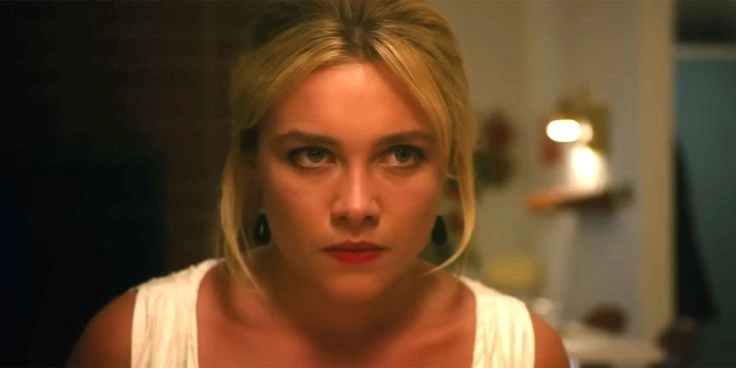
The cosmos, in this film, is not a cold void — it’s a mirror. And what it reflects is intimate and raw. There are no monologues about saving the galaxy, no superheroic poses. Just a woman trying to protect her people, hold herself together, and stay human in the infinite dark.
Pugh turns that darkness into something luminous, reminding us that in space, the most powerful force isn’t propulsion — it’s compassion.
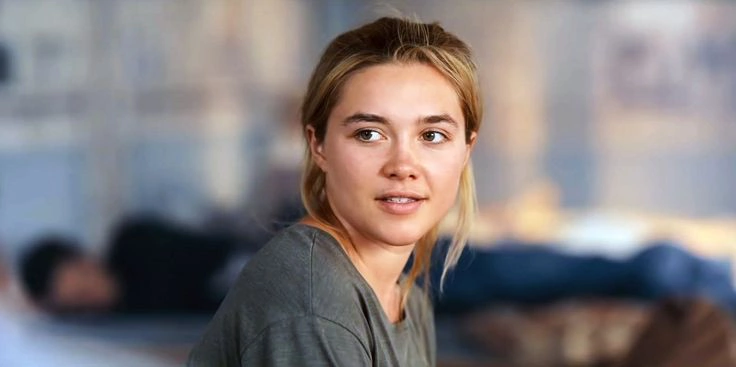
Starlight Expedition unfolds as both a journey into deep space and a journey inward, where silence is more profound than sound, and stillness often says more than action. Set in the late 21st century, the film chronicles the Atlas mission — Earth’s boldest attempt to reach the unexplored reaches of a neighboring star system. But unlike traditional sci-fi epics, the emphasis is not on technological marvels or galactic stakes, but on the psychological and emotional toll such a mission exacts on those who dare to leave everything behind.
The Atlas crew is small, diverse, and deeply human. Among them is Dr. Malek Chen (played by Riz Ahmed), a theoretical physicist and trauma survivor whose quiet demeanor hides a complex interior life. Commander Aria Solis(played by Thandiwe Newton), the ship’s moral compass, serves as Naomi King’s closest confidante — and occasional challenger. Tension arises not from external threats, but from internal strain: isolation, memories left behind, and the burden of expectations when failure means more than death — it means the end of hope.
The screenplay, written by Lisa Joy (Reminiscence, Westworld), favors realism over spectacle. Conversations are intimate, fragmented, and often tinged with longing. Flashbacks — used sparingly — offer glimpses of Earth, family, and the lives the crew once had. These fragments, emotionally charged and visually soft, contrast starkly with the clinical interiors of the Atlas and the vast, oppressive silence of interstellar space.
Visually, the film is stunning in its restraint. Director Denis Villeneuve, known for his mastery of tone and space (Arrival, Dune), crafts a cinematic experience that avoids cliché. The spacecraft is not sleek or futuristic — it’s functional, lived-in, even slightly worn. The stars outside the window aren’t treated with wonder, but with reverence and dread. The color palette shifts between cold steel blues and warm, memory-infused golds, echoing Naomi's own emotional oscillation.
As the Atlas drifts farther from Earth, time dilation begins to affect the crew. Years pass at home in a matter of days onboard. The psychological pressure mounts. Messages from Earth become rare, voices more distant. Some crew members grow silent, others restless. The line between duty and delusion starts to blur.
At the center of this pressure cooker is Naomi King, balancing survival with sanity, leadership with vulnerability. Her bond with the crew is not hierarchical, but profoundly emotional. In moments of crisis, she doesn’t command — she connects. Her conversations with Dr. Chen become philosophical — discussing the nature of memory, the elasticity of time, and the unbearable beauty of the unknown.
The score, composed by Hildur Guðnadóttir, is minimalist and haunting — built from deep synths, fractured echoes, and lingering silence. It doesn’t overwhelm the scenes but inhabits them, giving voice to what the characters cannot say aloud.
In the third act, Starlight Expedition takes an unexpected turn — not through a twist, but a revelation. The real purpose of the mission was never just exploration, but exile, orchestrated by world governments as a last-ditch attempt to preserve something unspoken. This betrayal fractures the crew's sense of purpose and pushes Naomi to make a final, irreversible choice — one that redefines sacrifice and reshapes the mission’s legacy.
Ultimately, Starlight Expedition is not about reaching a destination. It’s about what we carry with us — memories, regrets, resilience — when we leave everything behind. It reminds us that even in the most advanced ships, among the stars, we remain fragile creatures searching for meaning.
This is science fiction not for escapism, but for reflection. And in that reflection, we may just find ourselves.
In 2025, Margot Robbie reinvents herself in the gritty crime drama “Queen of Crime”, leaving behind comic-book chaos for the shadows of noir realism. Directed by Sarah Polley, the film is based on the true story of Diane Morris — a London-based woman who rose to power by building a secret financial empire during the turbulent 1980s, amidst corruption, gender politics, and high-stakes betrayal.
Robbie portrays Diane not as a stereotypical mob boss, but as a brilliant, dangerously charming strategist who juggles power and motherhood, ambition and moral compromise. It's a far cry from Harley Quinn — here, she plays a composed, calculating woman who controls everything until one critical alliance collapses.
The narrative spans Diane’s rise, reign, and reckoning, laced with suspense and psychological intensity. The aesthetic leans into noir elegance: smoky lounges, sharp silhouettes, and vintage jazz framing her empire’s rise and fall. Supporting cast includes Dominic West, Vanessa Kirby, and David Thewlis.
Set to premiere on November 17, 2025, at the BFI London Film Festival, Queen of Crime is already being called Robbie’s most mature performance yet — a transformative leap into prestige drama, where she doesn’t just play a queen, she becomes one
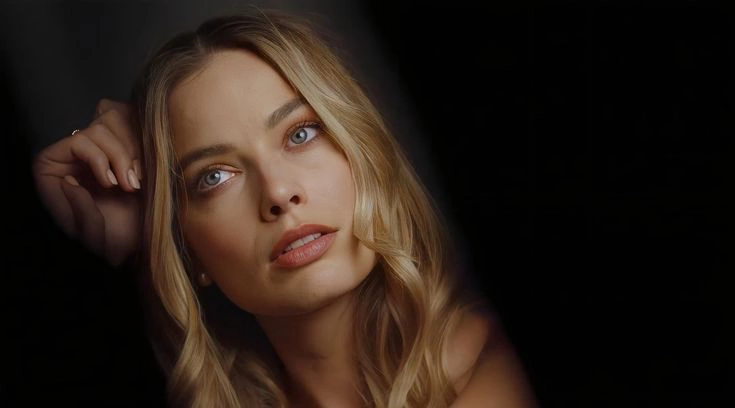
Queen of Crime isn’t just another entry in the true-crime genre — it’s a cinematic reinvention. At its core, the film is a character study about control: who wields it, who fears it, and what it costs to keep it. Diane Morris, brought chillingly to life by Margot Robbie, is no cartoonish mastermind — she is human, brilliant, bruised, and burning with purpose.
Set during Thatcher-era London, a time when power structures were shifting but still deeply hostile to female ambition, the film peels back layers of history, gender dynamics, and criminal sophistication. Diane operates in a man's world, but she doesn't try to mimic her male counterparts — she outthinks them. Her criminal empire is constructed not with violence, but with precision: shell companies, coded messages, and high-level manipulation. She launders money not through nightclubs, but through cultural institutions and luxury real estate.
Robbie’s Diane is cool under pressure, but the cracks show at just the right moments. In private, she's a mother shielding her son from the life she's built. In public, she's an enigma — impeccably dressed, eternally watchful, and always three steps ahead. The role demands subtlety over spectacle, and Robbie delivers it with simmering control. Her performance is less about dramatic outbursts and more about the stillness that precedes them — the long glances, the tightened grip on a champagne flute, the soft voice that carries razor-sharp warnings.
Director Sarah Polley infuses the film with a haunting tone, blending 1980s grime with timeless noir. There’s a tactile richness to every scene: flickering neon signs, the sound of stilettos on wet pavement, the hiss of jazz from an old record player. The film draws inspiration from classics like The Long Good Friday and The Third Man, but updates their sensibilities with a distinctly feminist lens.
Dominic West plays a corrupt banker with personal ties to Diane, their chemistry crackling with both danger and history. Vanessa Kirby takes on the role of Diane’s estranged sister — a social worker whose moral clarity becomes a mirror Diane tries desperately to avoid. David Thewlis, in a standout supporting role, is a disgraced detective who becomes both threat and confidant, circling Diane’s world with suspicion and reluctant awe.
The screenplay, penned by Abi Morgan (The Iron Lady, Shame), refuses easy resolutions. Diane isn’t romanticized — nor is she punished in simplistic ways. Her world is messy, morally gray, and painfully real. The film explores how women are judged differently when they seize power — seen as ruthless for the same strategies that make men legends. In Queen of Crime, every glance, every deal, every betrayal carries double meaning: one for the world she’s navigating, and one for the mirror she avoids.
At the heart of the film is a question: Can a woman change the game without becoming what she once despised? Diane’s arc is both tragic and triumphant, her rise built on the ruins of trust, and her downfall tangled in loyalty too long deferred.
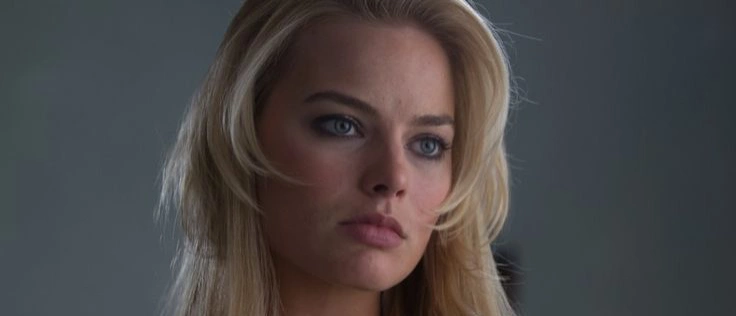
Queen of Crime doesn’t just mark a turning point in Margot Robbie’s career — it redefines it. With this role, she sheds her blockbuster persona and steps fully into the realm of character-driven prestige storytelling. Critics are already hailing the film as a slow-burn masterpiece — a rare blend of art-house aesthetics and commercial appeal.
With its world premiere set for the BFI London Film Festival on November 17, 2025, and Oscar buzz already building, Queen of Crime is poised to dominate conversations long after the credits roll. It’s not just about a woman who broke the law. It’s about a woman who rewrote it.
In 2025, the long-awaited prequel to the Mad Max universe — “Furiosa” — brings Anya Taylor-Joy to center stage in the title role. She plays the younger version of the fierce warrior originally portrayed by Charlize Theron. Director George Miller returns to the wasteland with his signature chaos, chrome, and mythic scale.
The film explores Furiosa’s youth and abduction by a warlord named Dementus (played by Chris Hemsworth). Anya underwent intense physical training and emotional preparation. Miller described her performance as a blend of fiery resilience and hidden sorrow — a side of Furiosa never before seen in Fury Road.
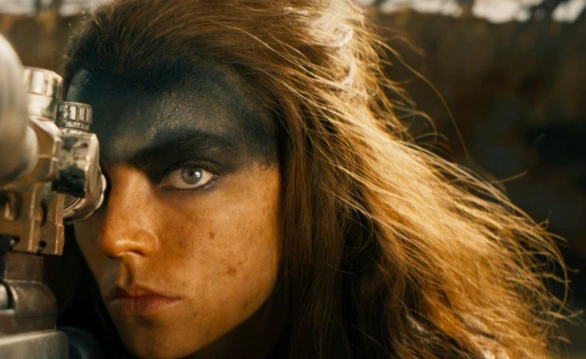
Furiosa is not just a return to the wasteland — it’s a rebirth. Where Mad Max: Fury Road delivered explosive momentum and minimal exposition, Furiosa takes a deeper, more introspective route. It traces the painful forging of a legend — how a girl torn from home becomes the relentless rebel we meet years later behind the wheel of a war rig.
Set years before the events of Fury Road, the prequel reveals a younger, more vulnerable Furiosa — not yet the war-hardened general, but a captive, a survivor, and eventually, a strategist in a brutal world without mercy. Director George Miller crafts a narrative that stretches across decades, showing not just battles, but transformations.
The film introduces the “Green Place” of Many Mothers not as myth, but as reality — a lost sanctuary that shaped Furiosa’s ideals and sense of justice. Its fall becomes the emotional engine of her story. Torn from this place of fertility and knowledge, Furiosa is thrust into the oil-and-blood economy of the Citadel system, where warlords carve up power and survival demands violence.
Chris Hemsworth’s Dementus is a striking addition to the Mad Max rogues’ gallery — a flamboyant, manipulative tyrant who uses charisma as a weapon. Far from a one-note villain, Dementus sees himself as a savior, building an empire from the wreckage of civilization. Hemsworth brings a twisted vulnerability to the role, oscillating between fatherly mentor and sadistic oppressor. His complex relationship with Furiosa becomes the film’s central axis: not just a battle of strength, but of identity.
Anya Taylor-Joy disappears into the role. Her Furiosa is defined not by dialogue, but by eyes that observe, calculate, and remember. She’s frequently silent, yet the performance speaks volumes — conveying the burden of memory, the slow build of rage, and the hunger for freedom. Her physicality is raw, and every scar has a story. It’s a coming-of-age tale in a world where innocence is not lost — it’s stolen.
The cinematography, once again helmed by Simon Duggan (with influence from Fury Road's John Seale), is breathtaking. The desert isn’t just a backdrop — it’s alive with shifting light, roaring storms, and ruins that whisper of a fallen world. The vehicle design leans more toward the skeletal and improvised, evoking an earlier, more chaotic phase of post-apocalyptic engineering.
While the action remains kinetic and grounded in practical effects, Furiosa offers a more lyrical pace at times — dreamlike sequences, night raids lit only by fire, and moments of stillness that emphasize isolation. Miller builds a mythological tone through ritual, costume, and symbols — from body paint to battle standards — all speaking to a fractured culture struggling to redefine power and purpose.
Tom Holkenborg (Junkie XL) returns with a thunderous, emotionally layered score. Brass blares meet ethereal synths, war drums pulse beneath whispered chants. The music doesn’t just energize action scenes — it weaves into the film’s soul, marking Furiosa’s internal evolution.
At its core, Furiosa is not just about survival — it’s about reclamation. Of identity. Of justice. Of a future stolen too soon. It’s a story about a girl made into a weapon, choosing to become a liberator.
As the engines roar and the sand flies once more, Miller reminds us why this universe endures: because amidst destruction, there is always a flicker of rebellion — and one woman, born in fire, ready to lead the charge.
For Taylor-Joy, acclaimed for The Queen’s Gambit, The Witch, and Last Night in Soho, this is a landmark role — not just another action film, but a character-defining odyssey. Premiering in May 2025, Furiosa has already been hailed as one of the greatest action movies of the decade.
In March 2025, Tom Holland brings his unmistakable charisma to the screen in the eco-thriller “The Last Forest”, directed by Lena Karpova. Co-starring Svetlana Ustinova and Zhang Chiwen, the film investigates the disappearance of mysterious forests in Russia’s Zabaykalsky region — a story blending environmental anxiety with personal drama. Holland plays a geologist-inspector caught between science and corporate corruption surrounding natural resources.
Known for blockbusters like Spider-Man and Uncharted, Holland’s role in “The Last Forest” marks a significant creative challenge: the film not only aims to captivate visually with its Siberian forest setting, but also to showcase Holland’s capacity for nuanced, dramatic performance. Where many see only action, Holland delves into complex emotional terrain.
The film debuts on March 22, 2025, with Holland confirmed to appear at its Berlin festival promotion. “The Last Forest” is shaping up to be one of the most memorable independently produced Russian films with global backing — and Holland’s contribution is central to its impact.

The Last Forest is not just an eco-thriller — it’s a quiet cry for help wrapped in a suspenseful, beautifully composed mystery. Set in the remote and hauntingly vast Zabaykalsky Krai of Eastern Siberia, the film uses its isolated setting as both narrative catalyst and atmospheric character. Director Lena Karpova — known for her minimalist, emotionally resonant storytelling — crafts a film that feels simultaneously intimate and epic.
Tom Holland plays James Calder, a British geologist who has spent years mapping disappearing biomes across Eurasia. Sent to investigate why entire tracts of ancient forest are vanishing without trace — not burned, not logged, but seemingly erased — he finds himself in a world where nature and truth are under siege. What begins as a scientific expedition quickly transforms into a confrontation with forces far beyond what his instruments can measure.
The deeper he ventures into the wilderness, the more unsettling his findings become. Animal populations are silent. Trees rot from within. Entire GPS-mapped valleys seem to vanish overnight. What James discovers is not a natural process — it’s a controlled dismantling, orchestrated by a global resource conglomerate whose reach stretches into government and private industry alike.
Holland’s performance is raw and restrained. Gone is the boyish exuberance of his Marvel years — here, he plays a man hollowed out by disillusionment, desperately trying to stay rational in a world that no longer follows rational laws. His James is methodical, but shaken. Courageous, but afraid to admit the scale of the crisis he’s uncovering. The role gives Holland space to embody quiet dread, grief, and a desperate, flickering hope for redemption.
Svetlana Ustinova co-stars as Irina Mikhailovna, a local botanist and former dissident who lives in near-exile at the edge of the forest. Her character provides not only scientific insight, but a cultural lens through which James must reexamine his Western approach to nature and knowledge. Irina believes the forest is not just an ecosystem, but a living memory — one that remembers destruction and doesn’t forgive it easily.
Zhang Chiwen brings measured intensity as Dr. Zhao Jian, a Chinese climate data analyst assigned to collaborate with James but secretly working with unknown interests. His loyalty, methods, and personal convictions remain shrouded in ambiguity, adding to the film’s growing sense of paranoia and unease.
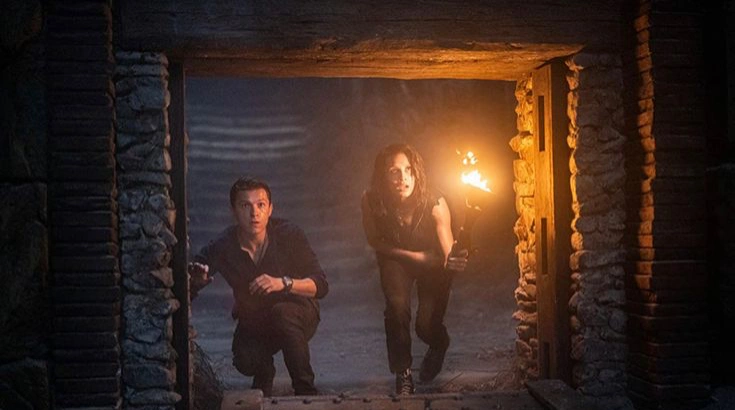
Visually, The Last Forest is stunning. Cinematographer Mikhail Alekseev captures the eerie silence of Siberia’s taiga with vast drone shots, fog-drenched ravines, and natural light that shifts from golden serenity to suffocating gray. The film moves slowly and deliberately, evoking a sense of creeping dread reminiscent of Tarkovsky’s Stalker and the ecological horror of Annihilation.
Composer Hildur Guðnadóttir delivers a sparse, unsettling score using field recordings of wind, creaking branches, and distorted birdcalls. The sound design itself becomes part of the storytelling — reinforcing the idea that the forest is watching, responding, changing.
But beneath the surface mystery lies a deeper meditation: on exploitation, colonialism, and the irreversible damage of human arrogance. As James uncovers corporate secrets buried in the soil — and faces his own complicity — the film asks pressing questions about what it means to be a witness, and what it costs to act.
Premiering on March 22, 2025, at the Berlin International Film Festival, The Last Forest is already generating buzz for its genre-defying mix of thriller, slow-burn drama, and environmental philosophy. For Tom Holland, the film is a bold, career-defining shift — a chance to prove that his talents extend far beyond the high-flying action of blockbusters.
And for audiences, it is a haunting reminder: the earth may not scream when it suffers — but it never forgets.
In May 2025, Apple TV+ released Fountain of Youth, an ambitious adventure film directed by Guy Ritchie and starring John Krasinski as its central hero The movie blends archaeological mystery, global adventure, and a philosophical twist on immortality — weaving high-octane action with a character-driven narrative.
Krasinski stars as Luke Purdue, a modern-day treasure hunter reminiscent of Indiana Jones, who embarks on a quest to uncover the legendary “Fountain of Youth.” Brother-sister dynamics come into play as Natalie Portman portrays his sister Charlotte, alongside a supporting cast including Eiza González, Domhnall Gleeson, Stanley Tucci, and Naji Moayed Their journey takes them through tropical jungles and ancient ruins, confronting secret tribes and shadow organizations, and facing life-altering revelations.
Written by James Vanderbilt, the screenplay aims to harmonize action-packed sequences with emotional resonance — especially exploring the sibling bond and moral dilemmas of seeking eternal life. Guy Ritchie’s directorial flare injects humor, brisk editing, and the nostalgic pulse of classic adventure cinema
Reception has been mixed. Critics praised the production values, cinematography, and performances but noted that the story often feels formulaic — echoing Indiana Jones without groundbreaking originality . Some described it as harmless escapism; others lamented that it lacks the fresh spark of true originality.
Still, the film offers a visually compelling and emotionally warm viewing experience. With exotic locales, familial themes, and subtle musings on mortality, Fountain of Youth invites audiences to ponder the true meaning of immortality — not in never-ending life, but in lasting relationships, memories, and courageous living.
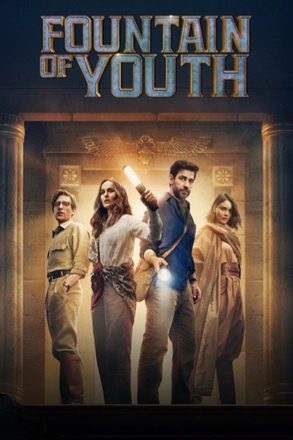
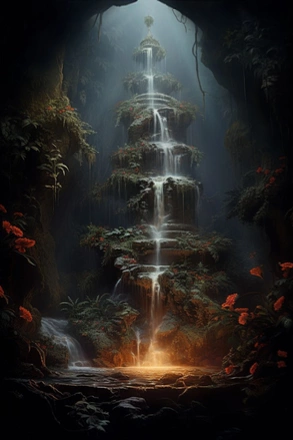
Today, Zendaya is widely
recognized as the true voice of Generation Z and one of the brightest stars of
her time. Although she is only 28 years old, she is already among the
highest-paid actresses in Hollywood. Moreover, Zendaya is the youngest-ever
recipient of an Emmy Award. In this article, we’ll explore how her career
began, the heights she has reached, and how she manages to balance acting with
activism.
The future star was born in
1996 in California. Interestingly, acting wasn’t a random choice for her:
Zendaya’s mother worked as the head manager at the California Shakespeare
Theater in Orinda. After school, the young Zendaya often accompanied her mother
to rehearsals, which likely laid the foundation for her love of the stage.
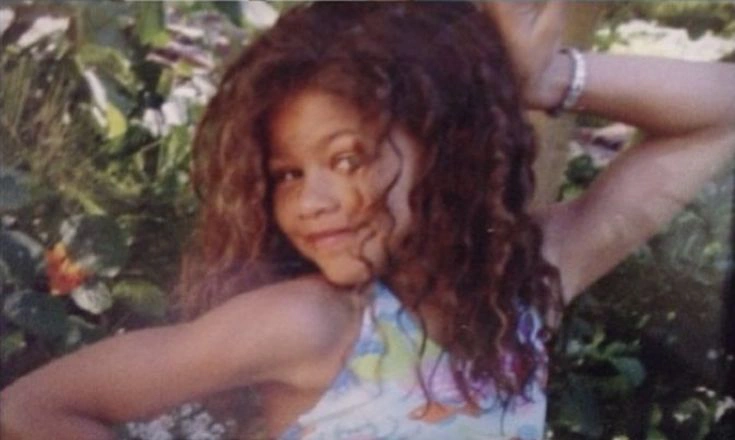
Zendaya’s desire to become
an actress appeared early on. Even in elementary school, she auditioned for
plays — at her first audition, she landed the role of a silkworm in a
production of James and the Giant Peach. Although she had no lines, she
gave it her all to make the character memorable and later said she became “the
best silkworm” of them all.
Alongside acting, Zendaya
pursued dance — she was passionate about hip-hop from the age of eight and
danced with the Future Shock dance troupe. By age thirteen, she realized that
her small hometown wouldn’t allow her to fulfill her full potential and told
her parents she dreamed of a career as a star and acting in teen TV shows. Her
parents believed in her talent: her father quit his job and moved with her to
Hollywood, while her mother took on extra work to support the family.
Thanks to her family’s
support, Zendaya quickly began appearing on television. She landed one of the
lead roles in the Disney series Shake It Up, playing Raquel “Rocky”
Blue, a dancer. This project marked her TV debut after appearing in a Selena
Gomez music video.
Zendaya’s character was
calm, rational, and disciplined — qualities that matched her dance background
and school life. Even then, Zendaya showed strong principles: she refused to
kiss on camera and negotiated a compromise so her on-screen partner would kiss
her on the cheek instead.

In 2015, Disney premiered
the show K.C. Undercover, where Zendaya starred as a high school super
spy. By then, she was 19 and had become a producer on the series. The show
stood out for its feminist tone and modern approach. Zendaya insisted that her
character not be a perfect superhero, but rather a relatable, even slightly
awkward, yet strong and independent young woman.
Parallel to acting, Zendaya
also tried her hand at music. She recorded duets with Bella Thorne for Shake
It Up and released an album, but in 2016 she decided to end her solo music
career. Later, she contributed to soundtracks for the series Euphoria
and performed at the Coachella festival.
After K.C. Undercover
ended in 2018, Zendaya starred in The Greatest Showman and Spider-Man:
Homecoming. In the latter, she played MJ — Peter Parker’s smart and
somewhat reserved classmate, whose romance with him becomes her first love
experience. The role was memorable, and she reprised it in the franchise’s
sequels.
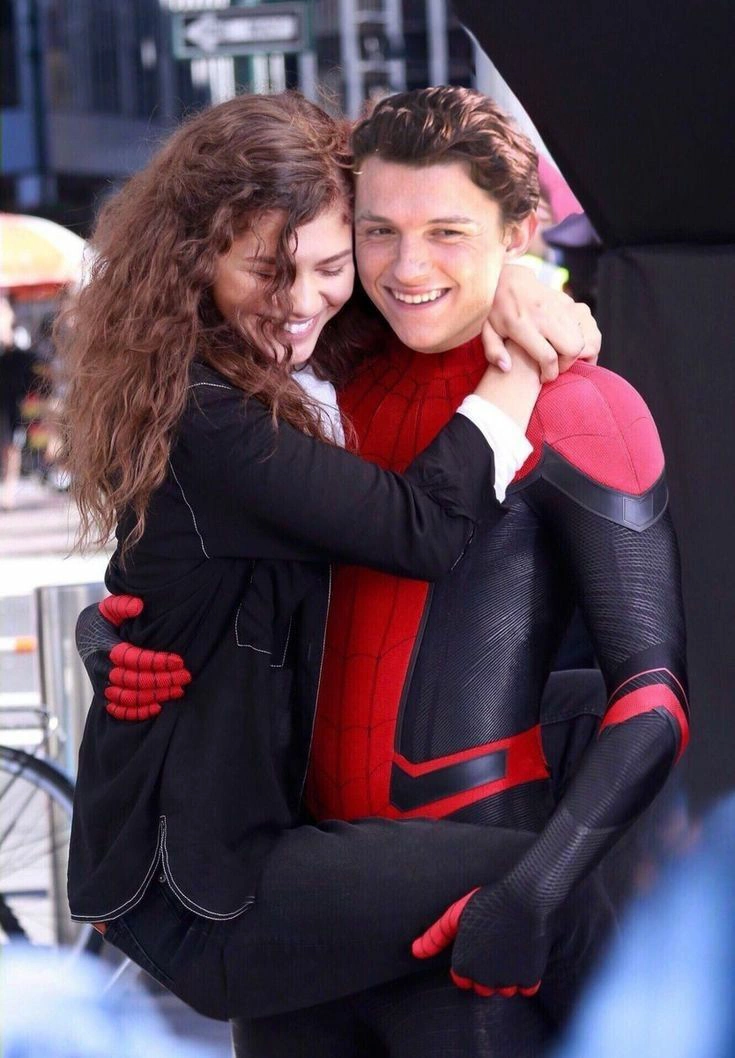
However, Zendaya’s real
global breakthrough came with the dramatic series Euphoria (2019), where
she portrayed Rue — a high schooler struggling with drug addiction. For this
role, she won two Emmy Awards and a Golden Globe. The transition from
lighthearted teen roles to complex drama was a serious challenge for Zendaya —
she worried about how the change would be received. But she took the risk and
proved her capacity for deep, multifaceted performances.
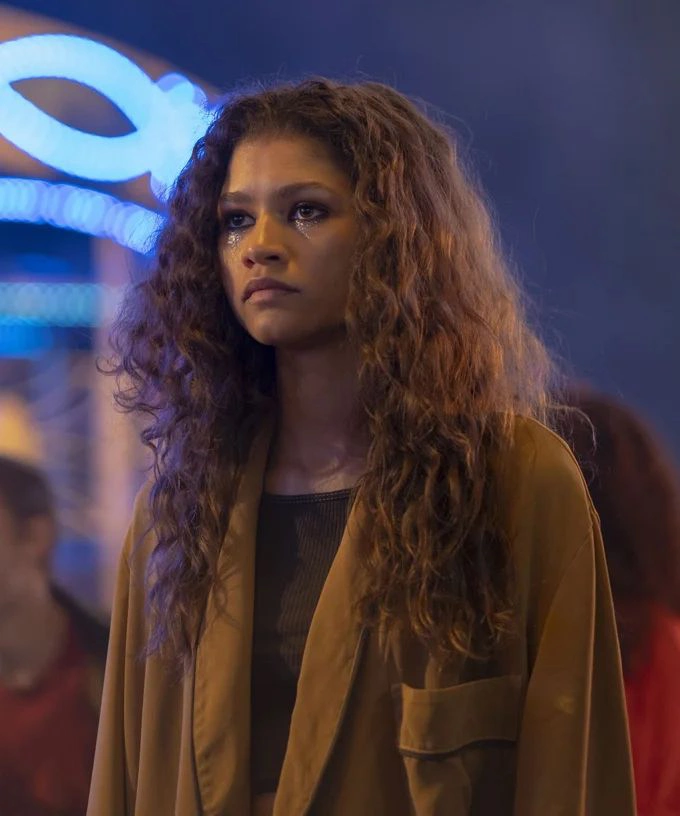
Euphoria creator Sam Levinson developed
Rue’s character alongside Zendaya, taking into account her personal growth and
emotions. Although Zendaya has never dealt with drug addiction herself, she
deeply understood the loneliness and inner turmoil of teenagers. Two seasons of
Euphoria have been released so far, with a third and final season
expected no earlier than 2025. Zendaya reportedly earns about a million dollars
per episode, making her one of the highest-paid young actresses on television.
Beyond her artistic
success, Zendaya is an outspoken advocate against unrealistic beauty standards.
In 2015, she publicly condemned excessive retouching of her photos in a glossy
magazine and shared unfiltered images with her fans.
This kind of star is not a
return to old Hollywood icons, but the birth of something entirely new. Not
just a symbol, not just an artist — but a cultural architect. Someone who
brings generations together on a common ground of meaning.
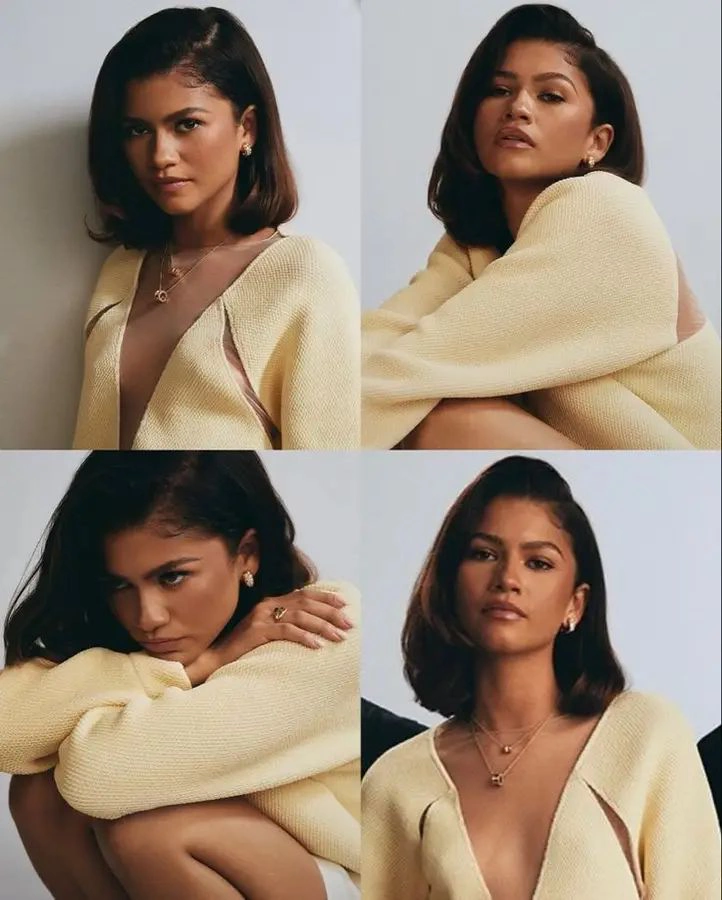
So why is she the voice of
her generation? Because she’s not afraid to be controversial. Because she
unites opposites — vulnerability and strength, art and activism, glamor and
truth. Because she doesn’t fit in — she rewrites the rules.
And most importantly — she
doesn’t just inspire. She gives tools. And that is far more valuable than
applause.
And which actress of the year 2025, in fact, are you? 🔥
Summer 2025 is set to amplify theaters with roars and awe as Jurassic World Rebirth revives the iconic dinosaur franchise. Debuting July 2, this seventh installment continues the legacy of Jurassic Park/Dominion, directed by Gareth Edwards (Godzilla) and penned by David Koepp — co-writer of the original Jurassic Park.
The film introduces a dynamic trio: Scarlett Johansson as covert ops expert Zora Bennett, Mahershala Ali as team leader Duncan Kincaid, and Jonathan Bailey as paleontologist Dr. Henry Loomis. Their mission leads them to the secluded Isle Saint-Hubert in the Atlantic Ocean — a former InGen dinosaur testing ground
They’re tasked with finding the planet’s three largest remaining prehistoric creatures — land, sea, and air species — only to discover genetically mutated dinos, including the horrifying Distortus rex, a six-limbed T-Rex evocative of H.R. Giger’s biomechanical nightmares
Jurassic World Rebirth pledges to deliver the cinematic grandeur, scientific wonder, and primal terror fans crave. With a $180 million budget, vibrant locales in Thailand, Malta, and the UK, and a score by Alexandre Desplat paired with John Mathieson’s cinematography, the production honors the original’s spirit .
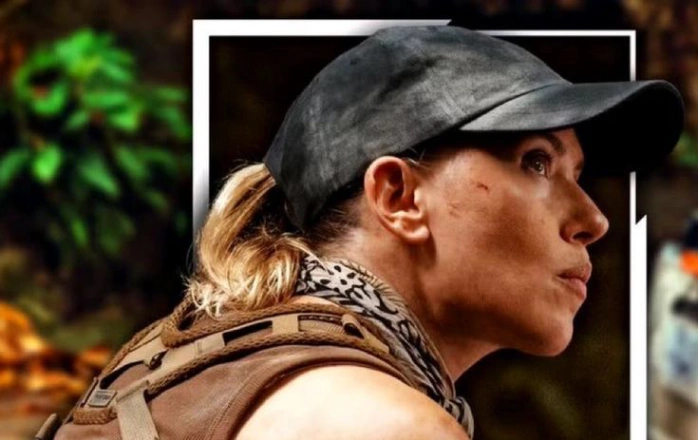
The early trailers hint at a potent mix of nostalgia and evolution — familiar dino mayhem alongside new emotional stakes and high-tech thrills. The team’s immersion in a primordial environment, edged with genetic unpredictability, promises a tense, immersive experience.
This July, Jurassic World Rebirth aims to reconnect audiences — from families and genre fans to franchise loyalists — with the epic spectacle of humans confronting ancient predators on a grander scale. The box-office debut will reveal if the film lives up to expectations, but for now, it stands as the summer’s most anticipated dinosaur event.